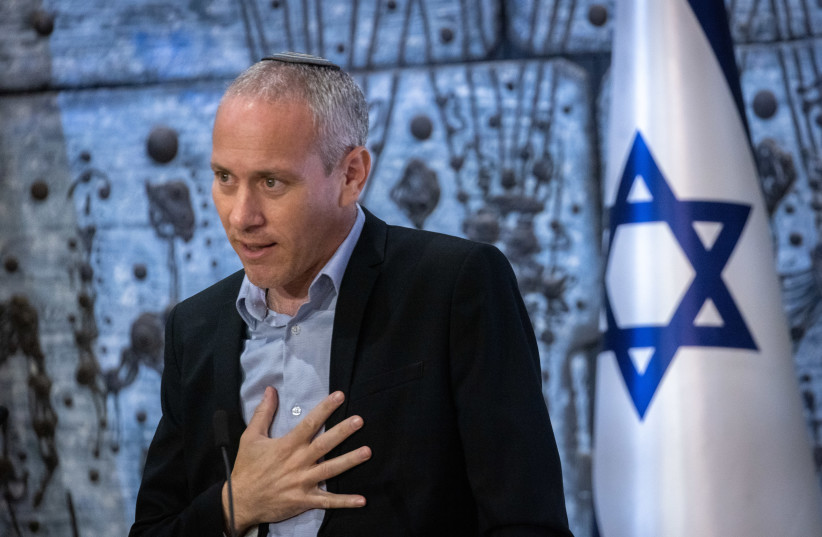The government is expected to approve an agreement with the EU that would, in effect, force Israeli artists and institutions participating in the program to boycott Judea and Samaria.
The program in question, Creative Europe, in which the EU provides grants to cultural projects and institutions, is expected to be brought before the cabinet next Thursday.
The total budget for Creative Europe is €2 billion. Israel plans to contribute NIS 33 million (€9.6m.), and the Culture and Sport Ministry expects Israeli culture will get back far more than that.
Like all EU programs, however, Creative Europe will not apply to Judea and Samaria, as well as areas under Israeli sovereignty that the EU does not recognize, including east Jerusalem and the Golan Heights.
"This is a real self-BDS."
Prof. Eugene Kontorovich
Israel endorses self-BDS?
Jerusalem Deputy Mayor Fleur Hassan-Nahoum wrote to Culture and Sport Minister Chili Tropper, calling on him to renegotiate the territorial terms of joining Creative Europe, which she said serve the interest of the anti-Israel boycott movement.

“Based on the terminology of the EU’s discriminatory instructions, artists who receive grants or prizes will be prevented from appearing in the Old City [of Jerusalem and the Jerusalem neighborhoods], Pisgat Ze’ev or Har Homa,” she wrote. “This is too high a price for strengthening ties between Israel and Europe.”
“If we do not respect our status and our policies ourselves, what are we?” Hassan-Nahoum asked.
“This is a real self-BDS,” said Prof. Eugene Kontorovich, head of the Kohelet Policy Forum’s international law department. “We are encouraging artists to sign up for a deal where they will be breaking the Boycott Law.”
According to Israeli law, boycotts based on geographic location, such as in the West Bank, are grounds for civil lawsuits.
“Artists getting grants just won’t want to be bothered and will steer far clear of the Green Line, [creating] a huge and immeasurable chilling effect,” Kontorovich said.
In a letter to Prime Minister Yair Lapid, Alternate Prime Minister Naftali Bennett, Tropper and Attorney-General Gali Baharav-Meara, the Kohelet Policy Forum said the government would be violating laws against discrimination by entering into Creative Europe. If the government does not announce by Thursday that it is canceling its participation in the program, Kohelet said it plans to petition the High Court of Justice against it doing so.
The last time the Creative Europe program was brought before the government for a vote, then-culture minister Miri Regev blocked it because it excluded Judea and Samaria.
Regev, a Likud MK, on Tuesday said: “Israel will pay NIS 33m. to exclude Israelis. The agreement sat on my table for years, and I refused to sign it. Tropper surrendered. Tropper is weak. Shame!”
The Culture and Sport Ministry said in a statement: “Like in previous European programs, the agreement is relevant only to European funding that comes from the program... The agreement does not prevent cultural institutions or artists who receive grants from the program from being active in Judea and Samaria and the Golan Heights as long as it is not funded in the framework of the program.”
Creative Europe differentiates between audiences, however, in that if Tel Aviv’s Habima Theatre receives a grant, it would not be able to perform in the Jerusalem neighborhood of Gilo or in Ariel in Samaria for the duration of the grant.
“The government’s argument is that [artists] just can’t do the funded project across the Green Line,” Kontorovich said. “But if the funded project is the institution itself, or a play that they are performing, it becomes inseparable.”
Israel-Europe cooperation programs
Israel rejoined the €95.5b. Horizon Europe program last year, which invests in scientific research and also excludes east Jerusalem, the Golan Heights and the West Bank. While there was a case in which a Tel Aviv University geologist had to return a grant to the EU because he used a soil sample in Samaria, the ramifications of Israel joining the Horizon Europe program agreement have mostly been to exclude Ariel University, which the government offered alternative grants.
In response to questions about Creative Europe, the Culture and Sport Ministry said it was using the same workarounds that were used with Horizon Europe.
The agreement “includes a clear statement that this is not meant to harm Israel’s principled stance about the status of the areas that entered under Israeli governance after June 5, 1967... The government instructed the Culture and Sport Ministry to form a system of support for cultural institutions that do not qualify for international grants because of their geographic location, similar to Horizon,” the ministry said.
